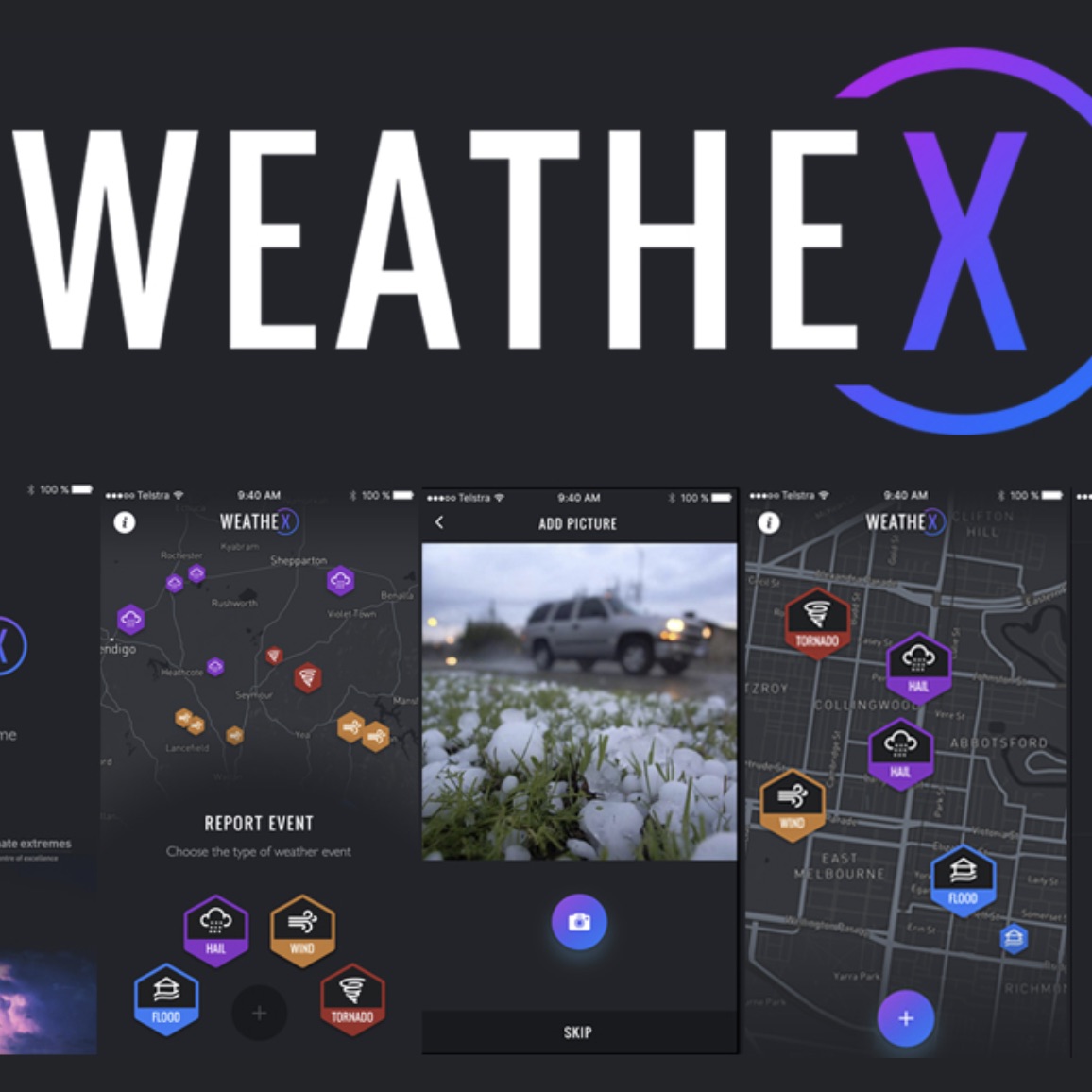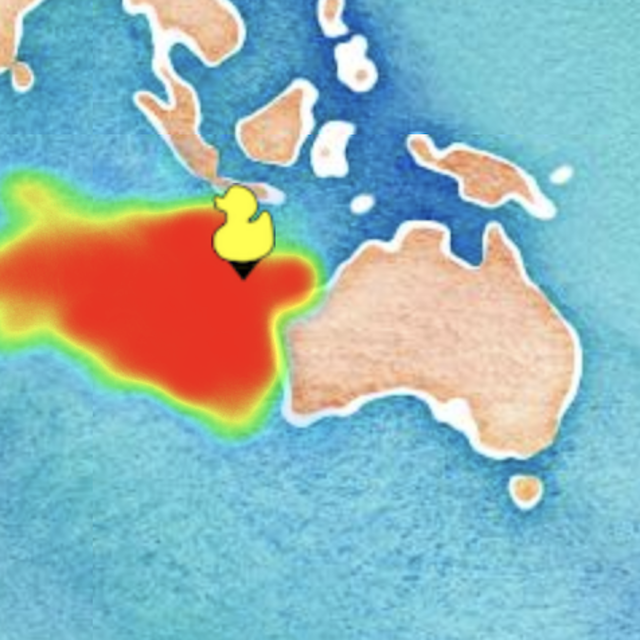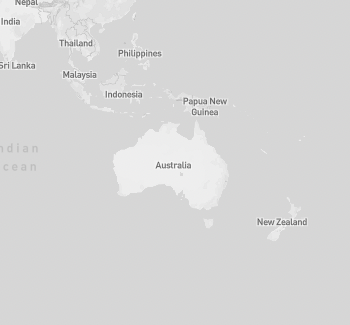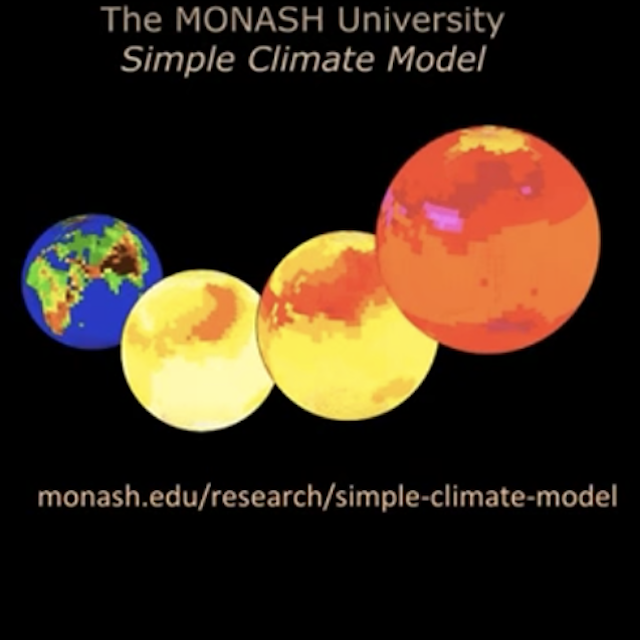Jonathan Brown with Centre researchers.
What is a climate extreme?
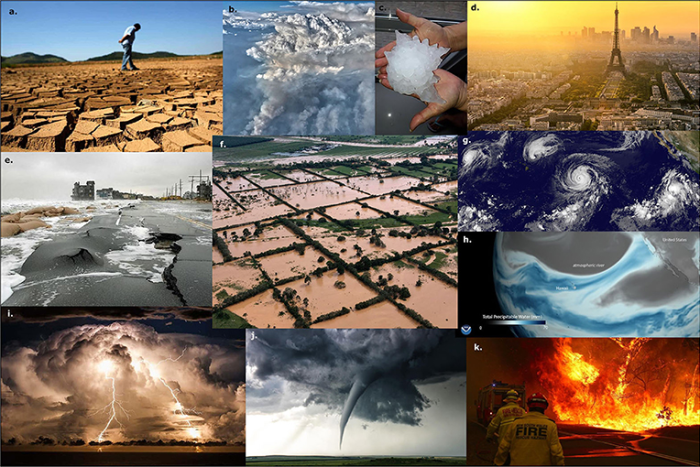
Extreme climate and weather events are unusual and rare events that often cause a lot of damage both to nature and to people.
They take place in the air (storms, tornadoes, heavy rain, atmospheric rivers), in the ocean (storm surges, marine heatwaves), and on the land (wildfires, heatwaves, floods, droughts).
Many weather and climate extremes happen naturally, even without climate change. But Earth’s changing climate does change where and how often some extreme events take place, and how strong those events are.
What are extreme climate and weather events? Will new or stronger extreme events happen due to climate change? How is climate change impacting extreme events?
These are the type of questions that climate and earth scientists from around are trying to answer.
(Adapted from the article Extreme climate and weather events in a warmer world)
I don’t know much about science – can you help me understand?
Thanks for taking an interest in our work!
Think about when you look up the weather on your phone or see the weather report on your television.
A lot of very smart people use complex science, computers, physics, mathematics and more to give you an educated estimate of what the weather will be tomorrow or in a few days time.
Sometimes the prediction is spot on and sometimes – surprise! – you’re stuck out in the rain without your umbrella. The weather can’t always be perfectly predicted, particularly many days in advance, but for the most part, they do a great job helping us plan ahead.
But then there’s extremes – floods, fires, heatwaves, storms and more – that cause damage to our homes, businesses and communities. Everyone wants to be able to predict these extremes better – especially as climate change influences how extreme and how often these events happen. But how do we do that?
Our experts look at the bigger picture.
We look back at when extremes have happened in the past so we can learn how often they happened, why they happened and learn lessons from the past.
We take that information, and use supercomputers to conduct experiments that help us estimate how often and how severe different climate extremes will be in the future.
This helps our communities plan for the future.
If your local council knows it’s more likely to flood in the future – they can plan for how your community will respond and prepare. If a farmer knows droughts are more likely in their area they can think about different types of crops, invest in more water storage, or technologies that use water more efficiently. If extreme heatwaves are more likely, your local hospital can plan for more patients affected by heat to come to the emergency department and your local council can have places you can go to cool off.
Scientists and researchers from lots of different fields contribute to our work – all so we can improve the predictions of these events and help our communities prepare.Our experts regularly speak to the media and write for websites like The Conversation. You can read some of their great work here.
I know a little bit of science – can I contribute or learn more?
Yes please! You may enjoy some of these apps and tools developed by us and our partners.
You may also enjoy our Briefing Notes – short summaries of the latest science – our way of keeping policy makers, Governments, decision makers, businesses and more informed.
I’m a school student and I’m interested in becoming a climate scientist.
Fantastic! We need more bright young minds learning climate science. Read our article How to become a climate scientist to learn more about what you need to do. It’s a great career choice and you can make a real difference for the future.
I’m a school teacher and would love to help my students learn more.
We have lesson plans available for Maths and Physics students from Years 10-12. We also run workshops with teachers. Read more about our Climate Classrooms program.
First section adapted from Frontiers for Young Minds.
Meyer A, Bresson H, Gorodetskaya I, Harris R and Perkins-Kirkpatrick S (2022) Extreme Climate and Weather Events in a Warmer World. Front. Young Minds. 10:682759. doi: 10.3389/frym.2022.682759



